Difference Between College and Trade School: What to Choose?

After high school, many students choose to get a degree in a college, while many others trade schools for building their career. Whichever way you go, the choice should be based on your strengths and weaknesses, personal preferences, career goals and of course thorough examination of the job market trends.
College offers a diverse range of opportunities, including extracurriculars, sororities, fraternities, etc. On the other hand, trade schools provide skill-based education with good employment prospects. Plus, you will end up with substantially less debt than with a college diploma. Both have the same goal in mind: to provide high-quality education and assist you in finding a future job.
What Makes the Admissions Process?
The average student begins thinking about universities shortly after entering high school. Applying for a college degree may be stressful as getting into a prestigious university is quite challenging.
To enter a reputable college, you need a high score on the Scholastic Aptitude Test (SAT). Sometimes even being involved in volunteer service initiatives and having a diverse portfolio of extracurricular activities are required. Even so, Ivy League schools (such as Harvard University, Yale University, and Princeton University) often require more.
The admissions procedure for trade schools, on the other hand, is rather simple. You won’t have to pass standardized tests or compete with thousands of other students for a spot. Instead, you may show your high school graduation certificate and enroll in the available program.
Credentials
A typical institution provides a four-year degree (followed by a master’s degree) and culminates with a gleaming diploma. Furthermore, all the individuals you study and socialize with at the college are perfect for eventually creating a professional network.
Trade schools provide certifications or credentials that aren’t equal to a college education but are good enough to acquire a job in a field that accepts the qualification. Apprenticeships are also available through several trade schools. As a result, when you finish your course, you’ll already have some good skills in your profession.
The Length of Education
On average, a bachelor’s degree takes four years to finish. This implies that if you begin college after high school, you will not be able to work until you become 22 years old. It may take much longer if you continue to a graduate program. A college degree can shorten your working life by a few years, but there’s no assurance you’ll obtain a job in your industry.
Meanwhile, trade schools take approximately half as long to complete the program. They are usually intense courses that take one to two years to finish. Students should anticipate receiving a practical experience that will prepare them for instant employment.
The Average Cost
It’s no secret that going to college costs a lot of money. Not just in terms of tuition: sustaining a respectable lifestyle throughout your college years might drain your bank account. As per 2021’s fourth quarter, student loan debt in the United States totaled $1.7 trillion, with the average debt reaching $37,000.
Graduates typically have debt installments hanging over their heads after final examinations, and they may not be able to save a dime. Even if you’ve spent hundreds of dollars on a traditional degree, there’s no guarantee you’ll get the dream job, except that you still have to pay back your loans.
Of course, don’t allow the possible expenses to deter you from earning a college diploma if you’re chewing your nails at those figures. Financial help, scholarships, loans, and grants are available at all times.
Trade groups and state governments are increasingly stepping up to offer financing choices to students contemplating vocational training.
Earning Potential
Some believe that college graduates have wider opportunities to find better jobs, thus making more money. Indeed, the college equips you with a varied set of skills, allowing you to pursue a range of career paths once you graduate. In their first employment out of college, graduates make roughly $50,000 per year on average, which is much higher than for non-college graduates. A number of these high-paying positions also come with amenities like health insurance, maternity, or pension benefits.
On the other hand, trade schools allow you to start a professional career a lot sooner, great thanks to a shorter length of education program. In addition, vocational institutions may be able to offer some very high-paying jobs. For example, the Bureau of Labor Statistics (BLS) stated that in 2019 the average salary for construction managers, radiation therapists, and dental hygienists was over $95,000, $85,000, and $76,000, accordingly.
Job Security Also Matters
Most positions you may get with a technical degree won’t be outsourced, which is one of the main advantages of going to a trade school. Automotive technician positions, for example, cannot be moved overseas since they need physical labor.
On the other hand, college degrees are frequently misunderstood as a one-way ticket to career stability. For years, employment in computing and insurance have been outsourced; even professions in healthcare, banking, and education are no longer protected.
College vs. Trade School: Soft Life Skills
While it is critical to concentrate on your Grade Point Average, it is also beneficial to gain extra life skills that may come in handy later. Employers are usually looking for someone with a strong mentality, a hard work ethic, and problem-solving abilities.
College really shines in this area. You may easily develop these skills in college if you participate in college events, meet friends from many cultures, or take extra classes. However, think about whether you’ll need the college benefits and programs later in life to avoid wasting your time.
Meanwhile, trade schools provide brief, career-oriented courses. They work with children and prepare them for careers in the industry. Unlike universities, vocational schools do not emphasize character development. The programs have been condensed to assist you in preparing for life outside of the classroom. The main track aim is to find the optimal employee experience.
